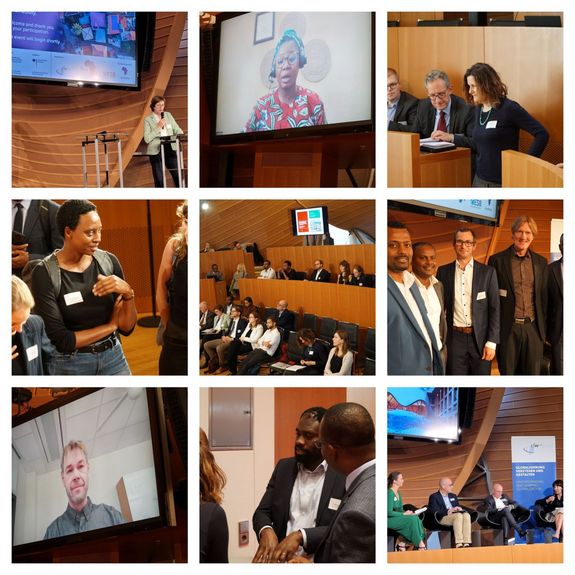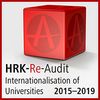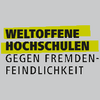19.09.2023
Joint Conference on Africa in Berlin
ESB Business School and Kiel Institute of the World Economy organized a Joint Conference on Africa in Berlin
On 19th September 2023, the Doing Business in Africa research group of ESB Business School Reutlingen University and the Kiel Institute of the World Economy jointly organised a one-day conference in Berlin titled Shaping Africa’s Future: Geopolitics, Business and Sustainability. This conference was organized in the context of the Cluster Research on Africa, which is funded and supported by the Federal Ministry of Economic Affairs & Climate Action as well as the Ministry of Finance.
It was an action-packed conference filled by policy experts, business practitioners and academics. The conference was opened by Dr. Dorothea Schütz, Deputy Director in the Federal Ministry for Economic Affairs and Climate Action. In her opening remarks, Dr. Schütz stressed the need for Germany and Europe to view Africa as partners and forge sustainable pathways for the future of the two continents. Professors Dr. Rainer Thiele and Dr. Philipp von Carlowitz also underscored the essence of institutional and research collaboration between the disciplines of economics and business in order to better understand the economic mechanisms in Africa and to develop more specific and impact driven policies.
The first session on Doing Business in Africa featured interesting research topics which were discussed by three prominent researchers and moderated by DBA research group. Professor Kenneth Amaeshi from the European University Institute emphasized the need to contextualize sustainable development in Africa by placing issues of existential threats such as youth unemployment and poverty at the centre of problem solving in order to gain the buy-in of Africa. Dr. Simon Züfle of the DBA research group took a fine grain look at China’s engagement in Africa and what it means for companies. Professor Aoife Hanley of the Kiel Institute for the World Economy discussed her research on African businesswomen. Her findings showed that the gender performance gap between male and female disappears when the latter is able to access credit through supply networks.
The sessions on mobilizing trade and investment addressed the topic of special economic zones in Africa and household wealth creation (Dr. Cecilia Hornok, Kiel Institute) and issues around regional trade integration and poverty reduction (Dr. Dede Gafa, African School of Economics). Professor Dr. Tobias Heidland and doctoral candidate Sebastian Krantz of the Kiel Institute also used the occasion to launch the Kiel Institute Africa Monitor (https://africamonitor.ifw-kiel.de/) which is a novel database that provides comprehensive economic data to facilitate policy decision making and academic analysis. Professor Ashenafi Fanta, Stellenbosch University, South Africa, Professor Bard Harstad, Stanford Graduate School of Business, and Dr. Sebastian Horn, World Bank, uncovered insightful aspects in a session on financing the transition to a sustainable future by focusing on the current debt situation of African countries as well as innovative financing solutions.
A panel discussion with three competent panelists concluded the conference, Dr. Ingrid Hamm (Managing Director of the Global Perspectives Initiative), Christoph Kannengießer (CEO of the German-African Business Association), and Dr. Cobus van Staden (Managing Editor of the China Global South Project at the Stellenbosch University) had a lively discussion on the energy sector in Africa with its potentials and challenges
We thank Elizabeth Radke. Kiel Institute for a brilliant moderation and everyone who contributed to making the conference a resounding success. If you have any questions regarding the topics on doing business in Africa topics, please feel free to comment or reach out to the research group.


![[Translate to English:]](/fileadmin/_processed_/2/a/csm_Header_03_e6ef15832d.jpg)




